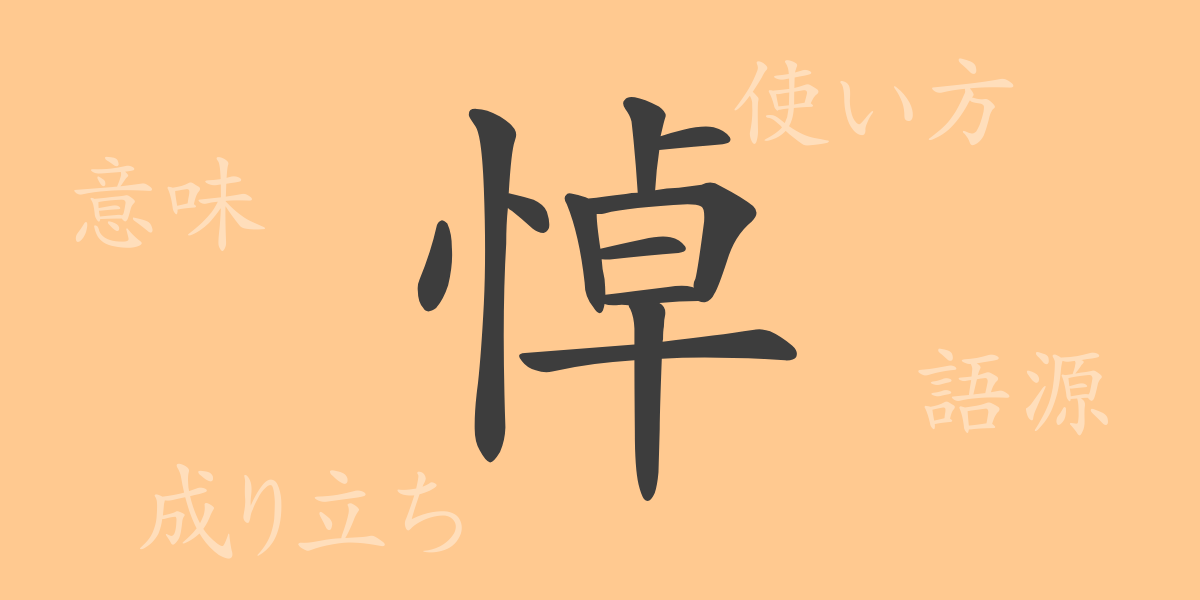Japanese language is rich in expressions that convey emotions and situations. Among these, the Kanji ‘悼 (とう)’ is known for expressing deep emotions. This article delves into the meaning of ‘悼’, its origins, and its usage in everyday life. By reading on, you will gain a deeper understanding of the power held by ‘悼’, which can enhance your choice of words.
Origins of ‘悼 (とう)’
The Kanji ‘悼’ has long been used to express grief and mourning over a person’s death. It is composed of ‘心 (heart)’ and ‘卓 (table)’, which together symbolize the heart reaching upward towards a table. Originally, ‘卓’ signified a tall standing tree, but here it is interpreted to mean the heart rising, or strong emotions surging upward.
Meaning and Usage of ‘悼 (とう)’
‘悼’ specifically denotes sorrow or commemoration for something or someone lost. It is commonly used when mourning someone’s death, often seen in the word ‘追悼 (commemoration)’. It can also be used to express deep feelings about something lost.
Readings, Stroke Count, and Radical of ‘悼 (とう)’
Let’s examine the readings, stroke count, and radical of the Kanji ‘悼’.
- Readings: On’yomi ‘トウ’, Kun’yomi ‘いたむ’ (‘itamu’), ‘うれい’ (‘urei’)
- Stroke Count: ‘悼’ consists of 13 strokes.
- Radical: The radical of this Kanji is ‘心 (heart)’, classifying it among Kanji that denote emotions.
Phrases, Idioms, and Proverbs Using ‘悼 (とう)’
There are several idioms and proverbs that include ‘悼’, as follows:
- 追悼 (ついとう) – Mourning the death of someone by remembering them.
- 哀悼 (あいとう) – Grieving deeply for someone deceased.
- 悼む (いたむ) – To feel sorrow for someone lost or something that is gone.
These idioms and proverbs are commonly used in everyday life to express emotions towards death or loss.
Conclusion on ‘悼 (とう)’
Each Kanji is deeply connected to its form and meaning. ‘悼’ is used to represent strong feelings of sorrow or commemoration, and can be found in many phrases and idiomatic expressions. Through this article, understanding the significance and applications of ‘悼’ can help you make more thoughtful word choices, enriching your communication.

























